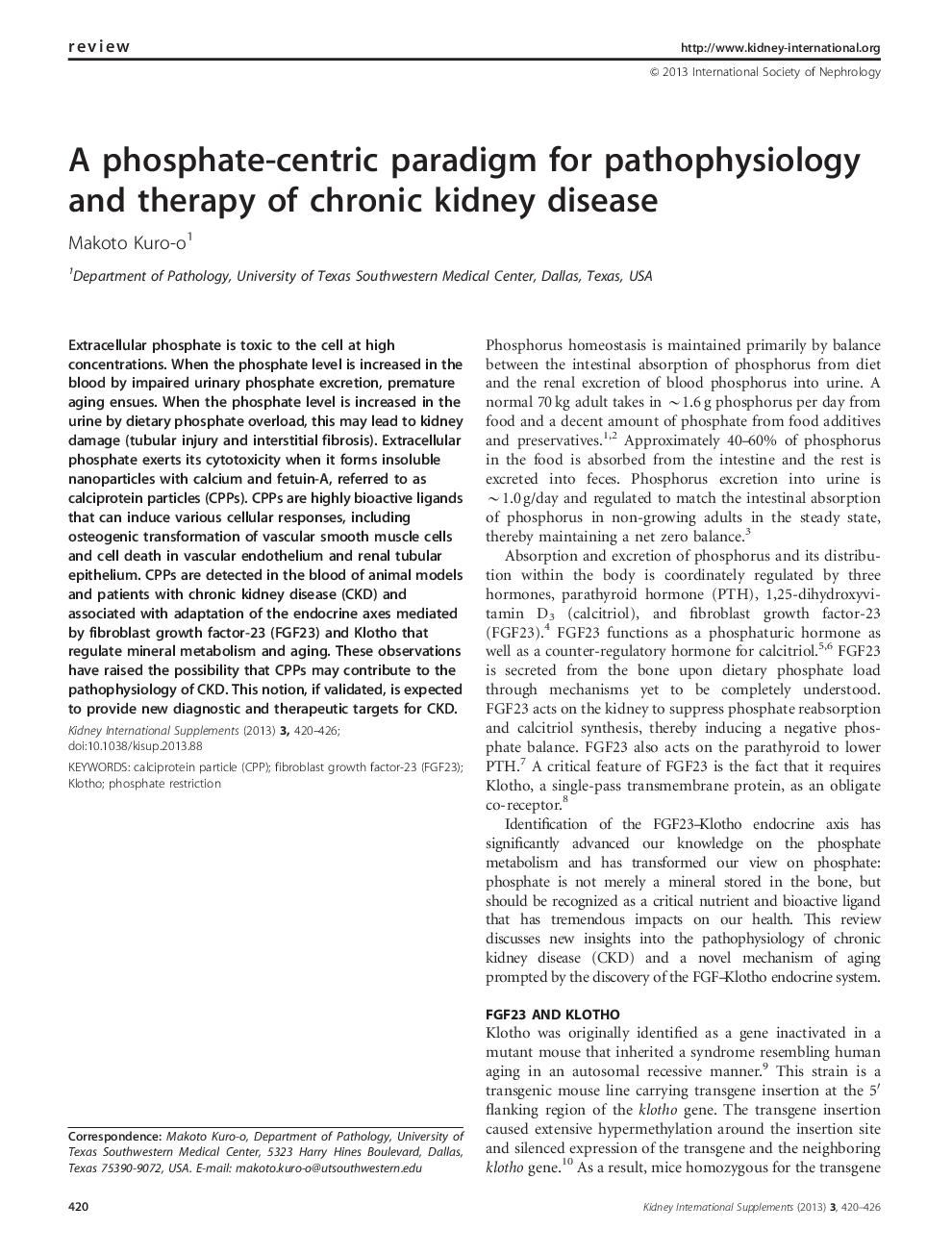| کد مقاله | کد نشریه | سال انتشار | مقاله انگلیسی | نسخه تمام متن |
|---|---|---|---|---|
| 3890588 | 1249987 | 2013 | 7 صفحه PDF | دانلود رایگان |
عنوان انگلیسی مقاله ISI
A phosphate-centric paradigm for pathophysiology and therapy of chronic kidney disease
دانلود مقاله + سفارش ترجمه
دانلود مقاله ISI انگلیسی
رایگان برای ایرانیان
کلمات کلیدی
موضوعات مرتبط
علوم پزشکی و سلامت
پزشکی و دندانپزشکی
بیماریهای کلیوی
پیش نمایش صفحه اول مقاله

چکیده انگلیسی
Extracellular phosphate is toxic to the cell at high concentrations. When the phosphate level is increased in the blood by impaired urinary phosphate excretion, premature aging ensues. When the phosphate level is increased in the urine by dietary phosphate overload, this may lead to kidney damage (tubular injury and interstitial fibrosis). Extracellular phosphate exerts its cytotoxicity when it forms insoluble nanoparticles with calcium and fetuin-A, referred to as calciprotein particles (CPPs). CPPs are highly bioactive ligands that can induce various cellular responses, including osteogenic transformation of vascular smooth muscle cells and cell death in vascular endothelium and renal tubular epithelium. CPPs are detected in the blood of animal models and patients with chronic kidney disease (CKD) and associated with adaptation of the endocrine axes mediated by fibroblast growth factor-23 (FGF23) and Klotho that regulate mineral metabolism and aging. These observations have raised the possibility that CPPs may contribute to the pathophysiology of CKD. This notion, if validated, is expected to provide new diagnostic and therapeutic targets for CKD.
ناشر
Database: Elsevier - ScienceDirect (ساینس دایرکت)
Journal: Kidney International Supplements - Volume 3, Issue 5, 2 December 2013, Pages 420-426
Journal: Kidney International Supplements - Volume 3, Issue 5, 2 December 2013, Pages 420-426
نویسندگان
Makoto Kuro-o,